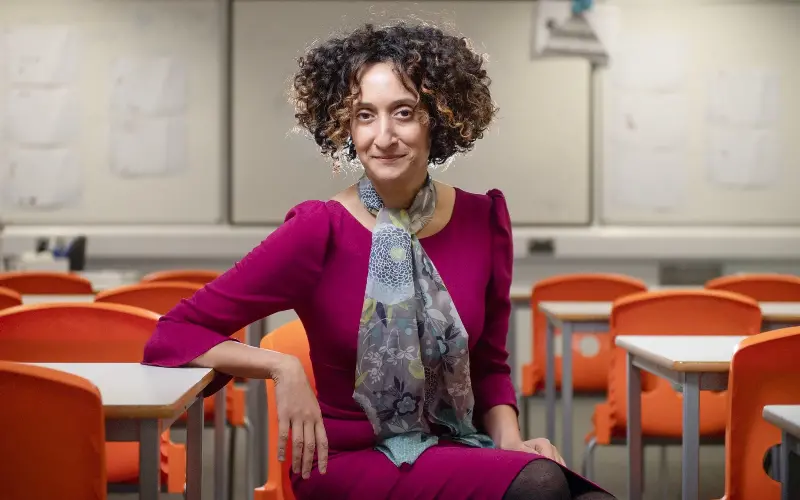
From tiger, helicopter, snowplough and lighthouse parenting styles, to free-range, French or gentle approaches, the task of raising children has never appeared more complex.
While parents of baby boomers gave little thought to how to bring up their kids, modern families are bombarded with advice and philosophies on nurturing their youngsters in a world where rapidly evolving technology is making the job much harder.
But the raging debate about the best way to do it, fuelled by a vast industry where the parenting app market alone is estimated to be worth over £500m, could finally be settled.
A new UK study which has tracked nearly 6,000 children for more than a decade has provided solid evidence about what parenting style is associated with the best outcomes. And the answer is: “authoritative”.
By plotting the progress of children since the age of two, the research has concluded that authoritative parenting, typified by high expectations, stricter limits on behaviour and warm relationships, is more likely to yield higher academic scores and better wellbeing.
Researchers at the National Centre for Social Research (NatCen) discovered that the approach produced better outcomes than “permissive” styles where parents are engaged but discipline is lacking, as well as “authoritarian” styles, where warmth is in short supply.
A challenge to the ‘gentle parenting’ phenomenon
Children raised in a household with an authoritative parenting approach were more likely to reach the expected standard in the reading, writing and maths tests at the end of primary school, even after taking into account variables such as parents’ educational level, according to the report, published this month by the Department for Education.
“At Key Stage 1 [children aged five to seven], higher parental limit-setting was associated with a greater likelihood of children achieving the expected level in Key Stage 1 reading, maths and science,” researchers say. “An authoritative parenting style, characterised by high responsiveness and high levels of psychological control and clearer parental limit setting was also found to have a positive impact on Key Stage 2 [children aged seven to 11] attainment.”
The findings of the Study of Early Education and Development (SEED) appear to be a direct challenge to the “gentle parenting” phenomenon that has taken the parenting world by storm in recent years.
Social media is awash with influencers pushing the approach, beloved of millennials, which teaches that the needs of the child must come first and that raised voices and the word “no” are verboten.
Taken to extremes, the approach can seem outlandish. Actress Mayim Bialik’s children went nappy-free as babies. Bialik, star of the hit TV series Blossom and The Big Bang Theory, practised something called “elimination communication” that involved trying to read a baby’s signals, and following them around with a potty. Fellow Hollywood actress Alicia Silverstone, of Clueless fame, posted a video of herself on YouTube in 2012 feeding her then 11-month-old son, Bear Blu, by chewing food and spitting it into his mouth.
According to gentle-parenting advocate Sarah Ockwell-Smith, misbehaviour is “a cry for help... It is a sign that all is not well in the child’s world. But most of the behaviour-control methods used today penalise the child for having a problem, rather than trying to help them solve it,” she says in The Gentle Parenting Book.
Ockwell-Smith and other devotees argue that gentle parenting is a form of “authoritative” parenting, and insist that it does involve setting boundaries, just ones that “validate a child’s feelings and employ kindness, empathy and understanding”.
But as gurus preach the gospel of “respecting” your child, exasperated mothers who have given gentle parenting a go are reporting that, in practice, it might only work with “gentle children”, and that more feisty offspring are running rings round them.
As one frustrated mother of a three-year-old puts it: “It’s a distressingly short journey from validating a child’s feelings to letting them cause mayhem in a supermarket.”
Critics claim that whatever the good intentions, in a fast-moving world where parents have little time to endlessly negotiate with their toddler, the gentle parenting approach has morphed into a permissive free-for-all and is spawning a generation of spoilt, entitled children.
Katharine Birbalsingh, founder of the hugely successful Michaela Community School, in north London, and known as the UK’s strictest headteacher, is one of them. She has attacked “middle-class gentle parenting” for creating a culture where parents are more interested in being friends with their children than holding them to account.
Teachers argue that the impact of this approach in schools is leading to chronic disruption and misbehaviour.
“Young people are more sensitive to simple things like being moved away from a friend for being too chatty in lessons, almost as though they aren’t used to consequences at all. There’s an unspoken sense of entitlement,” says Nadeine Asbali, a secondary school teacher in London. “When we give young children the impression their own feelings are superior, we create teenagers and young adults who are selfish and inward-looking and who believe they are exceptions to the rules.”
‘What children want are boundaries’
Prof Vivien Hill, psychologist and programme director at University College London’s Institute of Education, agrees that the real-world application of gentler parenting styles can run into problems.
“That child is going to be entering the world of school where a teacher has to be able to control and teach 30 children. Nobody has the capacity to negotiate in that environment,” says the academic, who is also a member of the British Psychological Society’s Division of Educational and Child Psychology.
“There is nothing more irritating to a teacher than giving a pupil a quick direction to keep somebody safe and they ignore you or want to have a 45-minute conversation about the pros and cons of their preferred course of action. There is something about how that style of parenting translates into wider communities and certainly the world of education and schooling.”
Scaled up, that lack of discipline can bring a school to its knees. School 21, a free school in east London founded in 2012 by Peter Hyman, Sir Keir Starmer’s senior adviser for education from 2022-2024, and Oli de Botton, who has just been appointed by the PM in the same role, was initially upheld as a shining example of progressive education.
It opened with one year group and was given a glowing first Ofsted report. As it grew larger, however, the wheels began to fall off. In 2023, it was judged as “requiring improvement” by Ofsted inspectors who found lessons were “too often disrupted by poor behaviour”.
According to the new head, Moray Dickinson, who is turning the school around after joining in 2022, behaviour at the secondary school was “really bad”. Despite this, suspension rates were “extremely low” and there were no permanent exclusions.
“There was a huge amount of lost learning in class. Teachers were at times frightened and they were not happy in their jobs,” he said. “There were fights. And as a result of that, the expectations for behaviour were very low.”
His top-down approach which has “tightened things up significantly” has just been rewarded by a “good” Ofsted rating.
The head is adamant that establishing clear structures and limits on behaviour do not have to come at the expense of good relationships with pupils. As the NatCen research confirms, with its findings on “authoritative” parenting, the key ingredients of warmth and stricter limits do not have to be mutually exclusive – in families or in schools.
“What children want are boundaries, but you don’t have to be authoritarian to operate boundaries,” says Prof Hill. “It is about knowing when to give them freedom to explore and do their own thing, but also knowing when they need boundaries. That should be being developed from birth through early years but it becomes essential in adolescence when getting it wrong can be quite catastrophic.”
